From a displaced person to a health volunteer: “I began sensitising women about sexual violence”
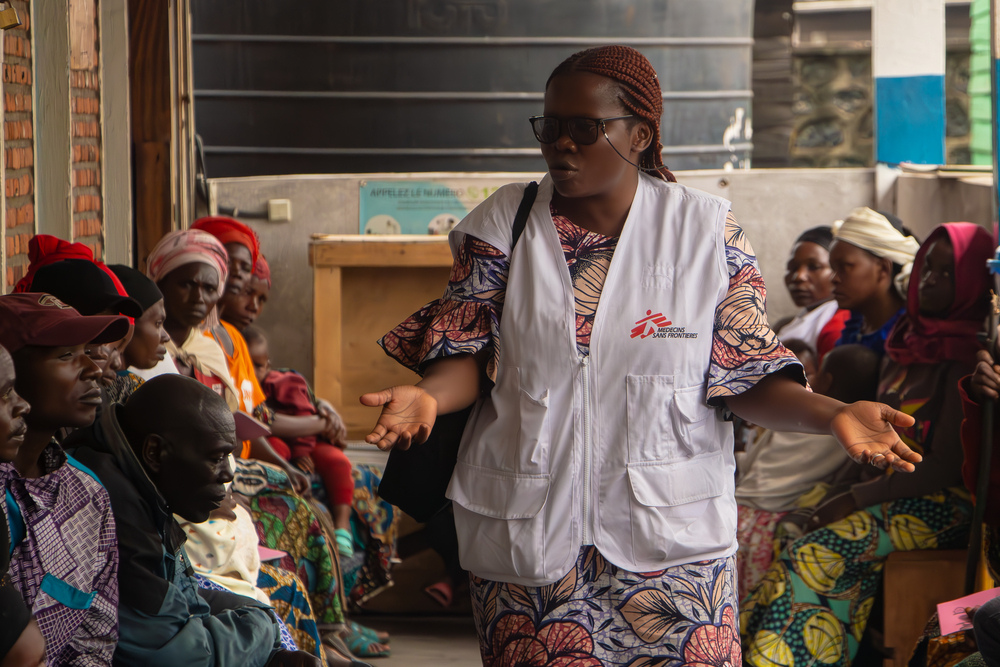
Under a heavy grey sky in eastern Democratic Republic of Congo, makeshift tents of thin plastic sheeting are held down at their edges by the volcanic rock typical of Goma.
Again, the number of tents is growing in Kanyaruchinya and other displacement camps, as another outbreak of violence in North Kivu has forced people to seek safety that is far from assured.
The conditions are dire. Basic needs such as food, water and sanitation are unmet, and there is a critical lack of measures to protect people from further harm.
The lack of security and means to survive has proven particularly dangerous for women, as evidenced by the high number of cases of sexual violence seen in Kanyaruchinya’s health centre.
Henriette Mbitse is a recent arrival, and one of the hundreds of thousands of people displaced in the province since 2022.
Married with nine children, she fled from Kibumba village with her relatives and now lives in the grounds of a primary school with those who survived the harrowing journey.
Mama Henriette, as she is affectionately called, was also an established community health volunteer in her village.
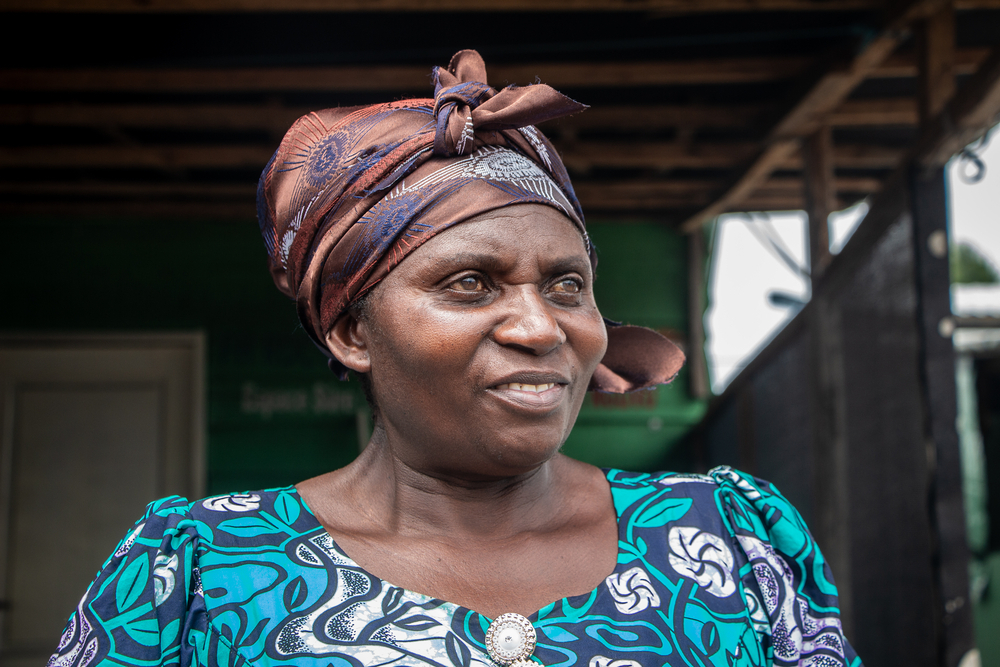
Identified by the Kanyaruchinya health committee as someone who could contribute to the healthcare response in the camp she was referred to MSF, which has been supporting access to healthcare for people in Kanyaruchinya since May 2022.
“I began sensitising women here in Kanyaruchinya about access to healthcare and about sexual violence, with MSF,” says Maman Henriette.
Women are at risk in several ways.
“[Sometimes] when women go into the forest to look for firewood they are raped.
When you don’t have soap or clothing… you go into the forest to look for wood or vegetables that you can sell.
This is a serious problem for a displaced person.”
“Sometimes, some men wake up in the middle of the night, rip the plastic sheeting with a razor and break through nearby sheeting to rape women who are living alone.”
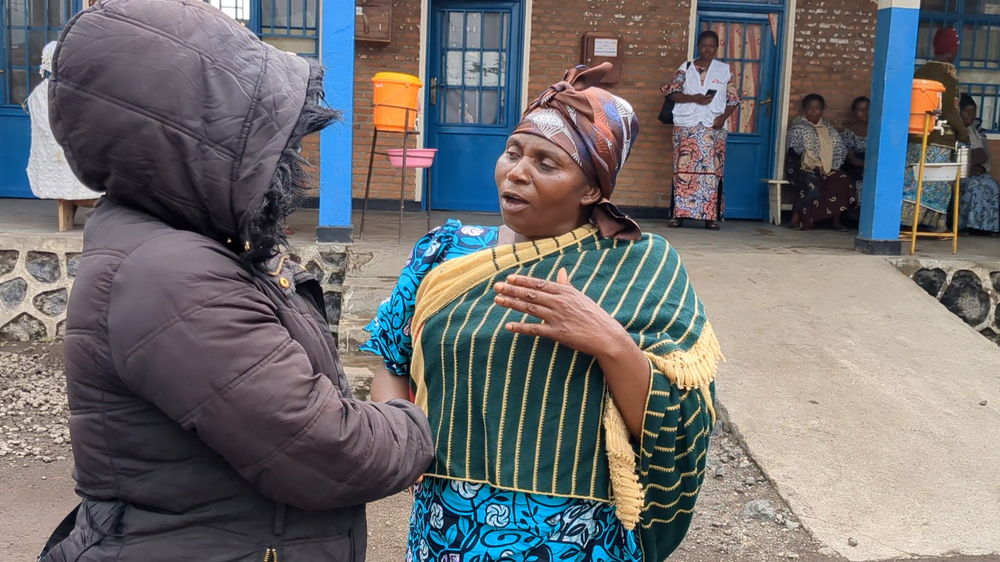
Clara* too fled to Kanyaruchinya, from Rutshuru territory, with eight children in her care.
“Because of the lack of food, I decided to go into the forest to look for firewood. When I arrived there… I came across three bandits; two of them asked me to choose either to be killed or raped. One of them ran away. When the two people finished their dirty work, they left. Then I left too, crying.”
Although she had heard health promoters and community health volunteers’ messages about seeking care and what was available, she was initially paralysed with distress.
“After that incident, I was staying in bed, crying, pitying my kids and those orphans who have no one to help them.
“About three days later I met a community health volunteer on her way,” says Clara. “I stopped her and told her I had a question. As she listened to me, I told her that I met bandits that raped me and that I was feeling bad. I asked her to lead me to the health centre.”
One of the health promoters leading the vital awareness-raising activities is Délice Sezage Tulinabo.
Délice also gives community talks, runs focus groups, and supervises community health volunteers like Henriette.
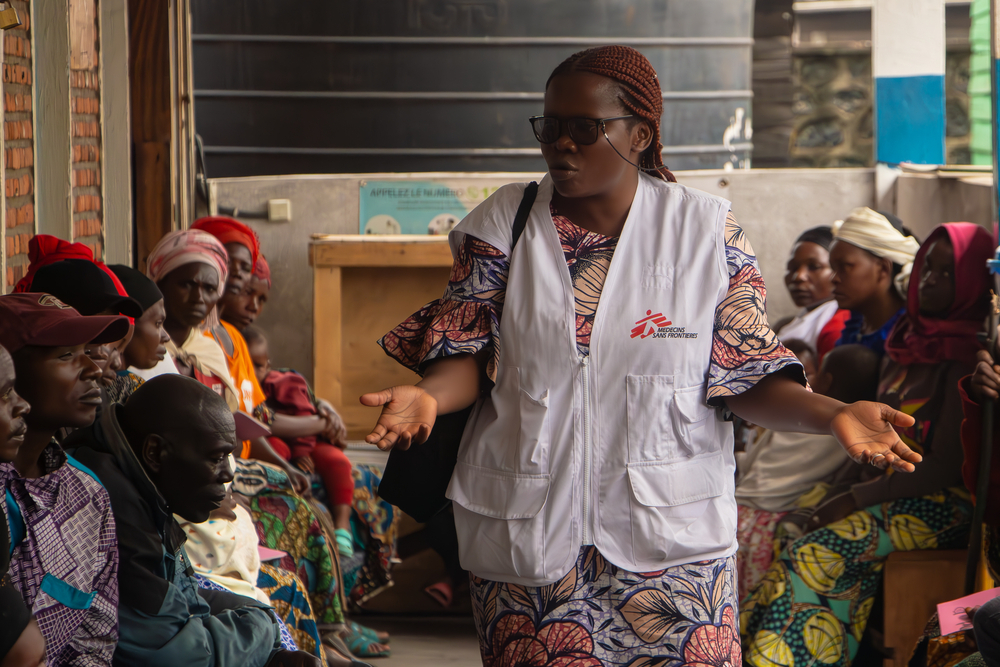
“Before MSF started working here, we had many cases of post-rape pregnancies for example. Now that MSF is here, there are us health promoters as well as community health volunteers... Now people come.
The services consist of medical care and then there is psychological care. Therapists and psychologists offer a follow-up, and we also [try to] guide women according to their needs to other services,” says Delice.
Delice is encouraged by the growing awareness of sexual violence and the importance of seeking care as quickly as possible. More women are seeking care within 72 hours of being assaulted, which is crucial for them to receive emergency care to prevent unwanted pregnancies and sexually transmitted diseases, especially HIV.
Delice is also inspired by how the women engage with MSF’s support. “I have learnt that they open up in front of other women… In their conjugal life, some women have been rejected by their husbands after they were raped. But when we approach these women, talk with them, and when they’re given medical care, they feel better. Also, the way MSF ensures confidentiality allows them to feel reassured.”
International aid has been gravely lacking for the people displaced by this new conflict, and Delice, Henriette and Clara all point to the lack of food distribution as a significant problem affecting people’s health and wellbeing.
As a member of the displaced community, Henriette says, “The lack of food is our most important need. Some of the children in the camp suffer from malnutrition because of poverty.”
For Clara, her family’s hunger has only deepened since she was attacked. “The quantity of food I receive for eight children, nine people including myself is not enough. This is not only my case but also the reality of many other displaced people in the camp. I almost beg for a living; on the days I find something, I eat with my kids; if I don’t, we sleep without eating anything, that’s how I live here. I’m afraid to be raped again if I go into the forest to look for something.”
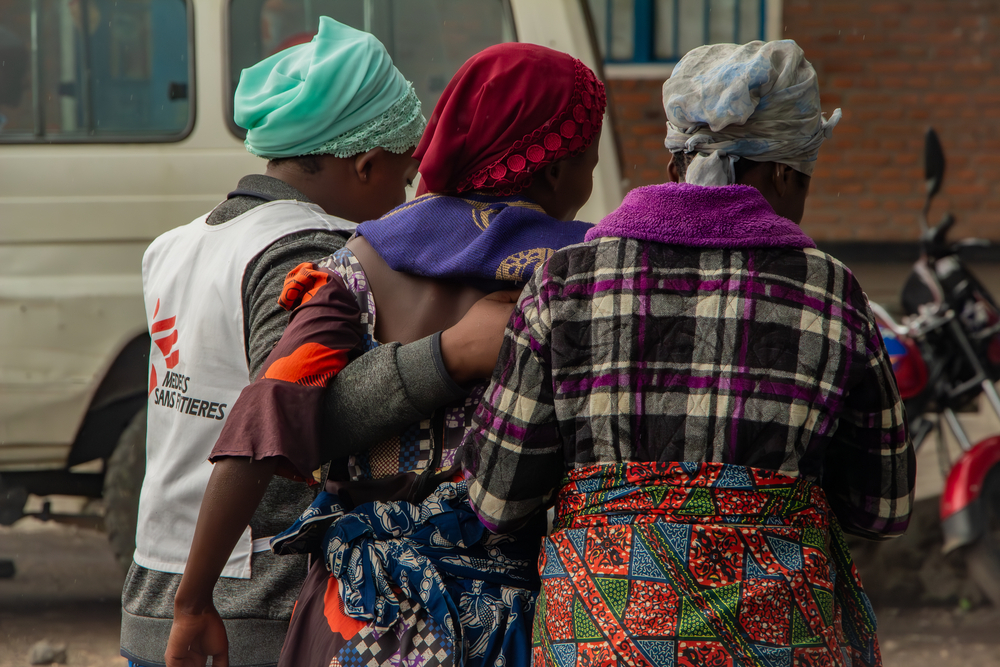
But the burden of surviving sexual violence has begun to feel less heavy. “Nowadays, I feel good, I feel free as I walk… I thank the health volunteer who brought me here because if she didn’t I could die, and the care I receive here is really helping me, because I was thinking that my kids would become orphans, having neither a father nor a mother… but because of the support I received I improved, and they are happy that my state of health is progressing, and there is hope for them that I will keep taking care of them.”
*A pseudonym has been adopted to protect individual privacy.
As well as providing medical and psychological care for survivors of sexual violence, MSF teams offer women various methods of contraception, treatment for sexually transmitted diseases, and safe abortion care. MSF also supports the obstetric and neonatal care departments in the Kanyaruchinya health centre, where around ten women give birth every day, primary healthcare and referrals of complicated cases to a hospital in Goma. More broadly, MSF provides treatment for and vaccination against outbreaks of cholera and measles, water and sanitation infrastructure and services, health promotion and nutrition care.





Leave a Comment